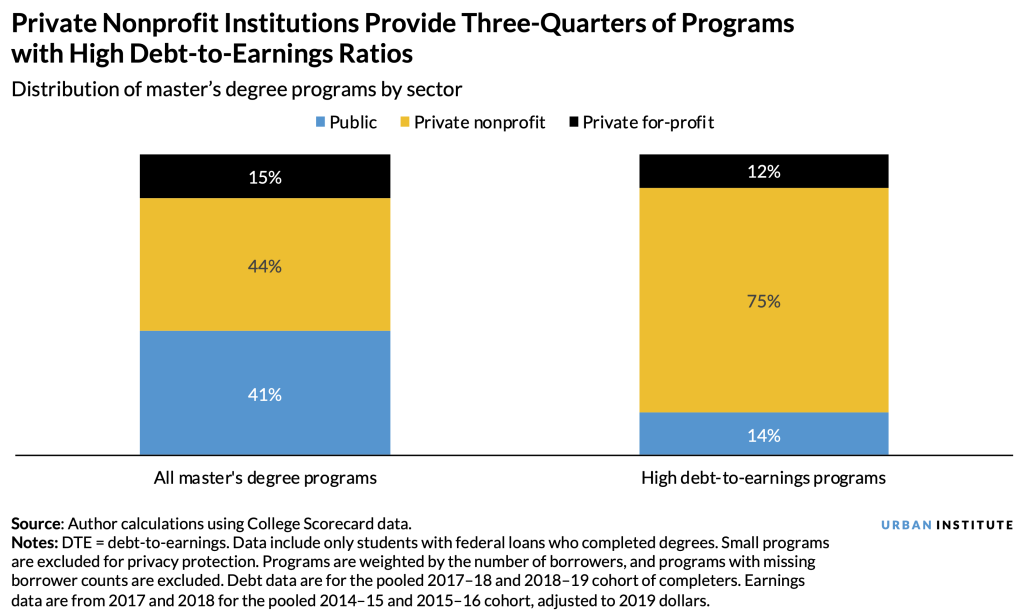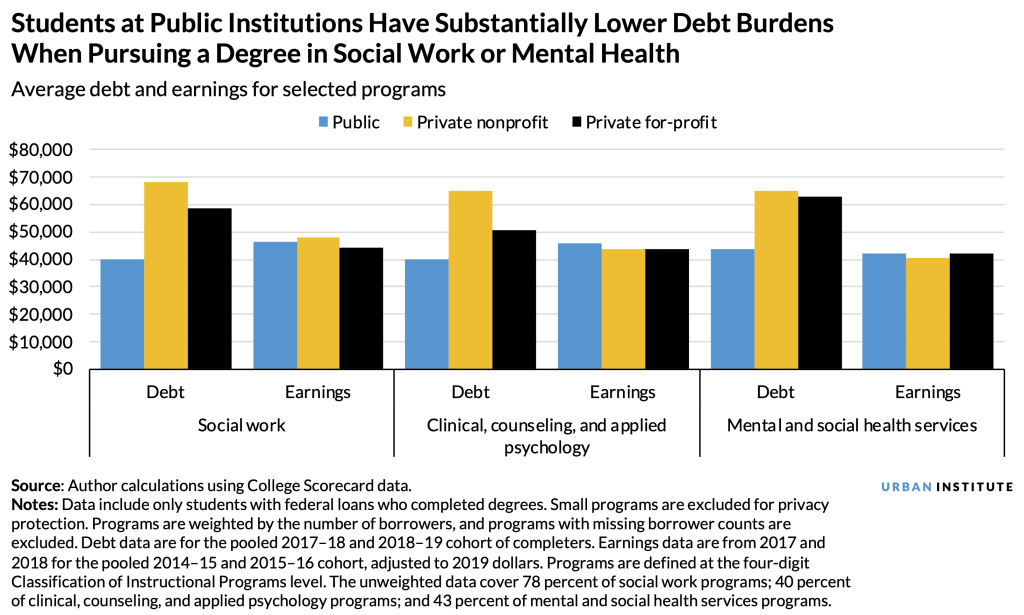One of the more pernicious assumptions around student debt is that most people with massive student debt also have a degree that would allow them to earn enough to settle the debt. The image of a young doctor in residency with high student debt is so common that many people will bring up earning potential when discussing their objections to student debt cancellation.
Unfortunately, quite a lot of student debt is held by people with comparatively low earning potential. Some of it was done as a clear scam on students, like with ITT Tech, something that the Biden administration took steps to address by canceling $3.9 Billion for 208,000 borrowers. But plenty of the debt is a slightly subtler scam, done by theoretically more high-minded institutions.
Masters programs have become a primary way that almost every university seeks to make more money, even at elite institutions like the Ivy’s. Often the cost is high regardless of whether the field has a high earning potential or not. In some ways the goal can be seen as admirable, providing a way for students to study whatever they feel curious about, but it really starts to feel predatory when we analyze the scale.
It isn’t only the elite universities that have this problem, as this article states, it is almost all private, non-profit universities. The system is not dissimilar to that which ITT Tech used, funneling low income students into any program, walking them through the process of applying for loans (sometimes federal, sometimes private) and then saddling them with the debt when they walked out the door.
For the most part, the specifics are not as sullied as the ITT Tech scandal. There is less hyper aggressive recruiting, less lying about job placement (although those numbers are always massage-able) and no other institution that has been accused of signing students up for loans without their knowledge, although this too might be happening more than is widely publicized because the government has a process to discharge debt accrued in this way. In general ITT Tech, as a for profit educational institution, was doing things in the most extreme and unethical way. But the non-profit privates are doing something similar, but not as egregious. As we recently reported, this is the group of schools that tend to command the top levels of public trust, and in the search for higher revenues, they have been the primary creators of these high debt, low earning potential degrees.

Those who choose fully public schools are far less likely to incur the high debt to earnings ratio found at private schools for programs in areas like social work. Public schools, when you have in-state tuition, tend to cost half of what private schools cost with almost no difference in earnings.

More Stories
Tutoring as a part of teaching / Everything comes back to money
One of the difficult things with education is our reliance on a “one size fits all” model. We have for...
Public K-12 Enrollment is falling and that is dangerous and exciting
A surprising result of COVID and the resulting school closures is that many parents, after struggling to figure out how...
SIGGRAPH at 50
SIGGRAPH , the premier conference on computer graphics education, held its 50th event last week in Los Angeles. Back in...
School Board Meetings in Crisis
School Board meetings across the US have become a new flashpoint in the culture wars that have been dividing the...
Biden is forgiving $40 Billion in student loan debt through “administrative fixes”
We talk a lot about big, sweeping policy changes because those are the kind of things that make for easier...
The Supreme Court has taken aim at students
The republican majority supreme court has now decided two important cases we’ve previously reported on; Biden’s student debt forgiveness and...
